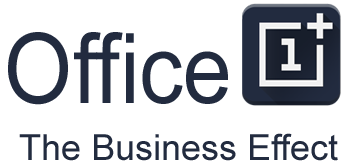Your finances are essential to track when you own your business. You may be small enough for the first year or two to do it yourself, and most people can also do their business taxes independently. But depending on how fast your business scales, you may need all kinds of financial help come to Year Three and so on.
Because you don’t have a ‘regular’ job per-se, keeping track of every dollar you earn is all the more critical, as you don’t necessarily have an ‘employer’ who also keeps track of your earnings, so you might have something to fall back on if you lose paperwork or whatever. But when you own your own business, that’s not the case. Everything is on your shoulders, financially.
If you find yourself in this position, you have a few options regarding financial planner tools to help you keep track of your business finances. In this article, we’ll go over what those are and their benefits to help you make the best decision for your business.
What Are Financial Planner Tools?
In general, financial planner tools are software-based business finance tools that better allow a business to track its finances – and can range from simple tools with simple functionality to complex tools with greater functionality that can build far bigger and higher-resolution pictures of your financial health and financial prospects as a business.
Using financial planner tools is even more critical if you own a business that hires employees. The right financial planner tool will help you keep track of employee hours, pay, and show where your employees could use improvement if specific areas of your business are suffering because of productivity.
When Would My Business Need Financial Planner Tools?
Financial planner tools can perform tasks instead of an accountant. You might benefit from financial planner tools if you find yourself growing and accruing income at an unexpected rate – so fast that you can’t keep up with it, and you’re haemorrhaging money paying your staff to do it for you.

You may also benefit from financial planner tools if your business lacks productivity in one area or another or your finances aren’t adding up. Likewise, if you’re looking to incorporate your business or are hoping to build longer-term projections for business success – before you bid on a big contract – you may also benefit from using a financial planner tool.
How Do I Know Which Financial Planner Tool is Best For My Business?
The best financial planner tool for your business will largely be decided by what your business is and how you expect it to grow, and what functions you want your financial planner tool to be able to perform.
Many financial planner tools can perform the following tasks:
- Make financial projections well into the future based on current financial data. Allowing you to plan better to increase your revenue, take on new projects, and/or make business model adjustments.
- Store all pieces of your business’ financial data centrally, saving you time and money looking for receipts, purchase orders, invoices – whether digital or paper copies. This will also save you money on things like printer paper, ink, filing cabinets and more – every little helps!
- Many different types of financial planner tools can help you build an ‘if-this-then-that’ scenarios that help you plan better for the future and make business-related ‘disaster’ management plans.
Assessing which financial planner tool is best for your business comes down to what you’re looking for from a financial planner tool and while some of them may be a pricier option, consider carefully what functions they’re going to enable your business to do automatically and how that may impact your overall bottom line.

